Today we’d like to introduce you to The Angel.
Alright, so thank you so much for sharing your story and insight with our readers. To kick things off, can you tell us a bit about how you got started?
I am a Brooklyn-born film and television composer, one of the rarified six percent of women composers worldwide in 2022. My story starts in the nineties as a record producer and recording artist, which later led to my scoring my first studio feature, the New Line classic, “Boiler Room” led by Giovanni Ribisi, Vin Diesel and Ben Affleck.
Eclecticism defines my creativity and my career. I arrived in Los Angeles in ’93 from my adoptive home of London, after writing, producing and recording my first album for LA-based record label Delicious Vinyl. My first single, “Spirit of Love,” was released with a video and I started doing college radio tours, gigs and in-stores up and down the west coast. But Delicious lost their distribution with Atlantic Records and the album was never released. Now that could have been the end of my story, however, it was just the beginning.
Label owner, Mike Ross was excited about the sound that I’d created, a blend of soul, jazz, reggae and hip hop and he asked me to remix my label mates, The Pharcyde and The Brand New Heavies. I became one of the only women I knew remixing artists including Spearhead, Jody Watley and Donald Byrd as well as producing Bay Area rapper/poet/singer, Mystic. Establishing my own sound, brought me opportunities I could never have imagined and that’s what led me to my greatest passion, working to picture.
Since then I’ve scored studio and independent features on both sides of the pond including the UK cult hit, “KiDULTHOOD” as well as network and cable TV series, like “Standoff” for Fox, “HawthoRNe” for TNT and the Ava DuVernay directed pilot, “For Justice” for CBS. I devote time each year to support women and filmmakers of color by scoring and producing short films and documentaries. I also develop and produce for film and TV.
Alright, so let’s dig a little deeper into the story – has it been an easy path overall and if not, what were the challenges you’ve had to overcome?
I come from very humble beginnings and consider myself a proud Brooklyn underdog. I was never driven by fame or money. I followed my passion, and am self-taught as a producer, musician, programmer, engineer, mixer and film/TV composer. It never dawned on me that being a woman would be an obstacle to anything. But in the very male-dominated music business including composing, it made me an anomaly. And at times, it has worked against me. So the road has been both smooth and rocky.
With the help of my husband, Kevin Herlihy, I started my own record label, Supa Crucial Recordings. We initially released singles and albums on CD and vinyl, while I DJ’d and performed as both The Angel and 60 Channels at events including the very first Coachella, SXSW and the Winter Music Conference. Later iTunes offered us a direct deal for digital distribution. But getting enough exposure as an independent artist without a big marketing budget, always made things challenging. Having said that, I was undeterred.
I learned the value of owning and controlling my master recordings and once my major publishing deal expired, I took control of my publishing rights via Supa Crucial Music. Later Kevin and I set up the production company Devilishly Good Productions and have licensed many of my recordings to film and TV series including “24,” “Six Feet Under,” “The Wire” and “Crash.”
The biggest challenges presented themselves after I became a film composer. I had no idea that of all the crafts in the entertainment industry, this is the one where women are the most marginalized. I soon discovered that the majority of high-profile projects are scored by a small percentage of men, whose business models are anathema to the way I work. With embedded old boy relationships, many have built teams of up-and-comers straight out of Berkeley, who are eager to gain experience by ghostwriting and producing from behind the curtain. And this decreases the opportunities for women and composers of color. I mention this because I’ve been asked throughout my career why I believe the statistics for women composers are consistently so abysmal. And this is one concrete reason.
Many composers are “comfort hires” rather than great creative fits for each project. However, I’ve only been sought after by directors and showrunners because I’ve been a great creative fit. So when you ask about challenges or obstacles, here’s my earliest example from the nineties. My remix of Donald Byrd’s “Kofi” for Blue Note caught the ear of actor, writer-director, Vondie Curtis Hall. He was just about to start shooting his film “Gridlock’d,” starring Tupac, Tim Roth and Thandie Newton when his production team asked me to write a song as a pre-record for the film. But the timing was off, I had to fly to New York the next day because of a commitment to Blue Note and couldn’t meet their deadline. I’ve described this roller-coaster ride in detail in posts on my website and on my IG feed.
Just when I thought all was lost, music supervisor Pilar McCurry called to say that Vondie wanted me to score the film! When I returned to LA, we would meet and make this happen. I was thrilled. And then Polygram, the studio, refused to allow them to hire a first-time composer, even though I had recently scored scenes in the Paramount Pictures feature, “’Til There Was You.” So, Stewart Copeland was hired. Then weeks later, the creative team came back to me. They wanted my sound. “So could they give me my own cues to work on?” The answer was simple, yes. And that’s exactly what happened. Then came the politics of the credits where I learned what a catch-22 it is to get one’s first single card credit. I was offered several options including the second single card at the end of the film right after Vondie’s, or fading in on a shared card at the beginning of the film with Stewart. I took the single card so I didn’t look like Stewart’s helper and set the precedent for my future.
And TV is worse! When I scored the FBI hostage negotiator drama, “Standoff,” I was only the second woman in sixteen years to score a Fox primetime network drama series…. and the first woman Sony could remember being hired by them to score a primetime show for TNT, and that was “HawthoRNe” starring Jada Pinkett-Smith. At the time, my agent was told that one male composer had scored thirty-three percent of all Sony’s TV productions over a thirty year period. For Ava’s pilot, CBS said they had never done a deal with a female composer before. The challenges have mainly been a product of old boy cronyism and Old Hollywood practices that became a comfortable standard for the men pulling the strings to this day… Something that as a New Hollywood Movement member, I’m all for changing.
Can you tell our readers more about what you do and what you think sets you apart from others?
I’ll come back to eclecticism. Though I started out as a record producer, I’ve found that those skills have translated into my becoming a creative producer for film and TV. And though I’m known for producing cutting-edge, cool music, when it comes to scoring film & TV, I’ve been hired to jump through every stylistic hoop in the book on drama projects where my score spans traditional and acoustic-driven, to hybrid electronic scores.
In August, I’m releasing my original score for a powerfully moving independent arthouse feature, “GAIA” directed by cinematographer Jason Lehel. With the film set in the Arizona desert, my score is organic, emotional and evocative, laced with atmospherics I created to weave throughout guitars, strings and piano.
And on the opposite end of the sonic spectrum, on July 29th I’m releasing a leftfield anthemic single by my alter ego 60 Channels. The song “How It Goes Down” feat Slimkid3 (of the Pharcyde) is produced and remixed by yours truly.
For a little history, my debut self-produced album, “No Gravity” turned 21 this year. And my unreleased first album, “A Message From The Angel” that has been “reduction aging” in the Delicious Vinyl vaults since 1993, will be released as a time capsule in 2023.
My current single, released during the pandemic is “Words Like Daggers” featuring Jhelisa. I co-produced the nocturnal emotional video with award-winning director Mark Pellington, who co-directed with Sergio Pinheiro and Sweeten. The video, with a killer perfomance by Jhelisa, is currently on YouTube.
I scored two short films that are making their way through the festival circuit this year. “The Mechanic’s Rose,” written and directed by Yucef Mayes, produced by Craig T. Williams is screening at The Micheaux Film Festival on July 15th and “Confessions,” which I also executive produced alongside writer, producer, director Evette Vargas (founder of The New Hollywood Club on Clubhouse) is nearing completion. I have a slate of projects that I’ll be scoring later in the year as well as projects that I’m developing and producing. I’m forever focused on my passion for creating, collaborating and uplifting the creatives around me…
Contact Info:
- Website: https://www.
theangelsoundclash.com - Instagram: https://www.
instagram.com/theangel. supacrucial/ - Facebook: https://www.
facebook.com/ TheAngelSoundclash - Twitter: https://twitter.com/
supacrucial - Youtube: https://www.youtube.
com/channel/UCAHaww- 1AxIBy3rQwnjHBWA - Spotify: https://open.spotify.
com/artist/ 1JW04qPY0PRWZUEkKWkoY2?si= Y7oHXktiQWCCvmCjMRUdNg - Other: https://linktr.ee/
theangel
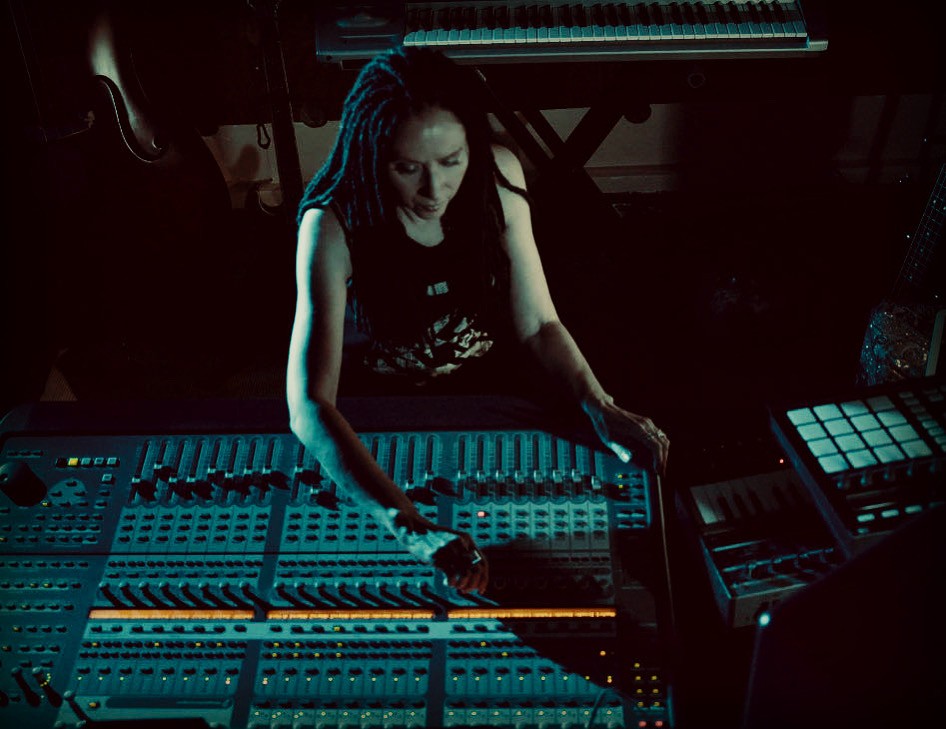
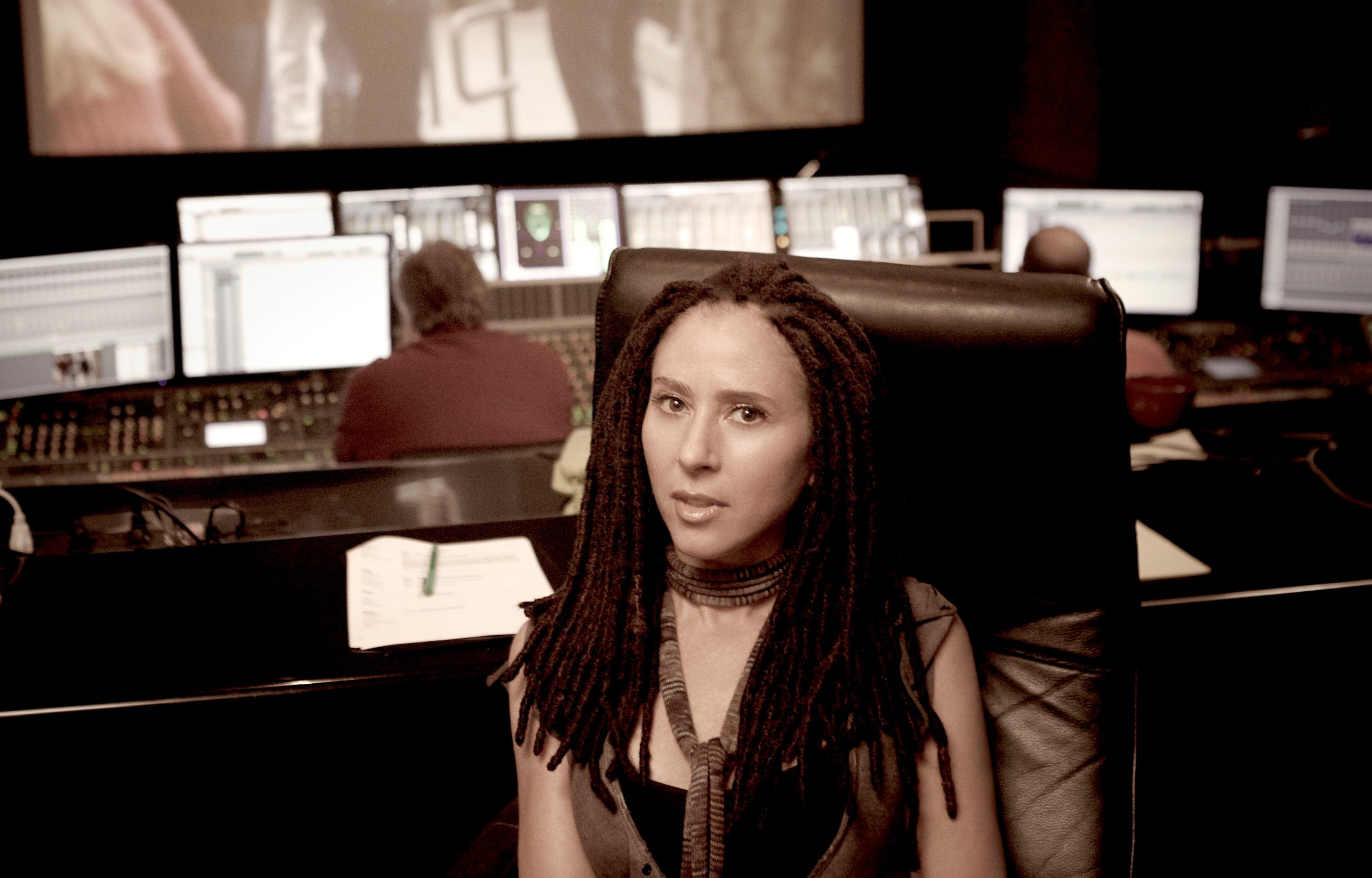

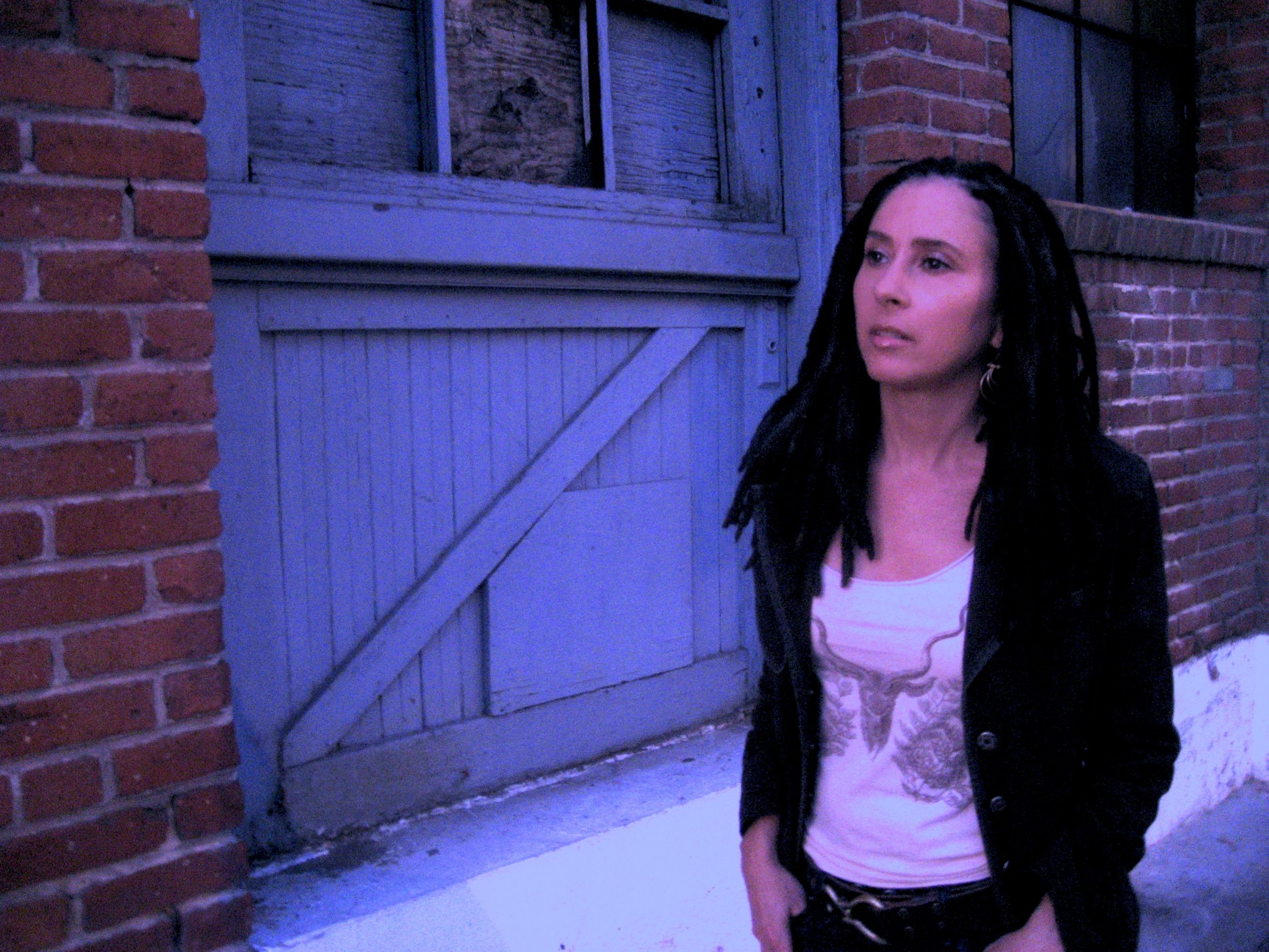
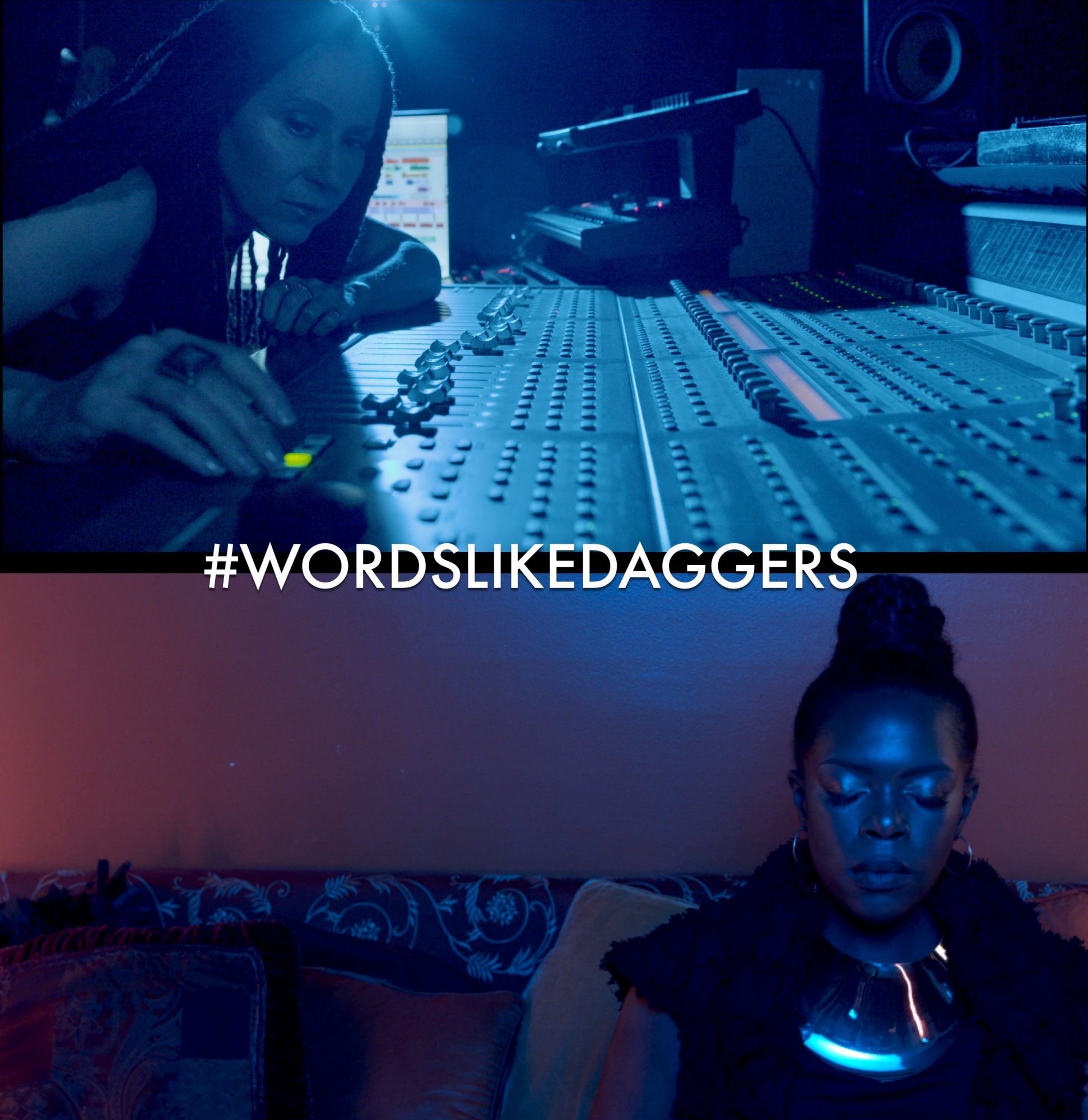
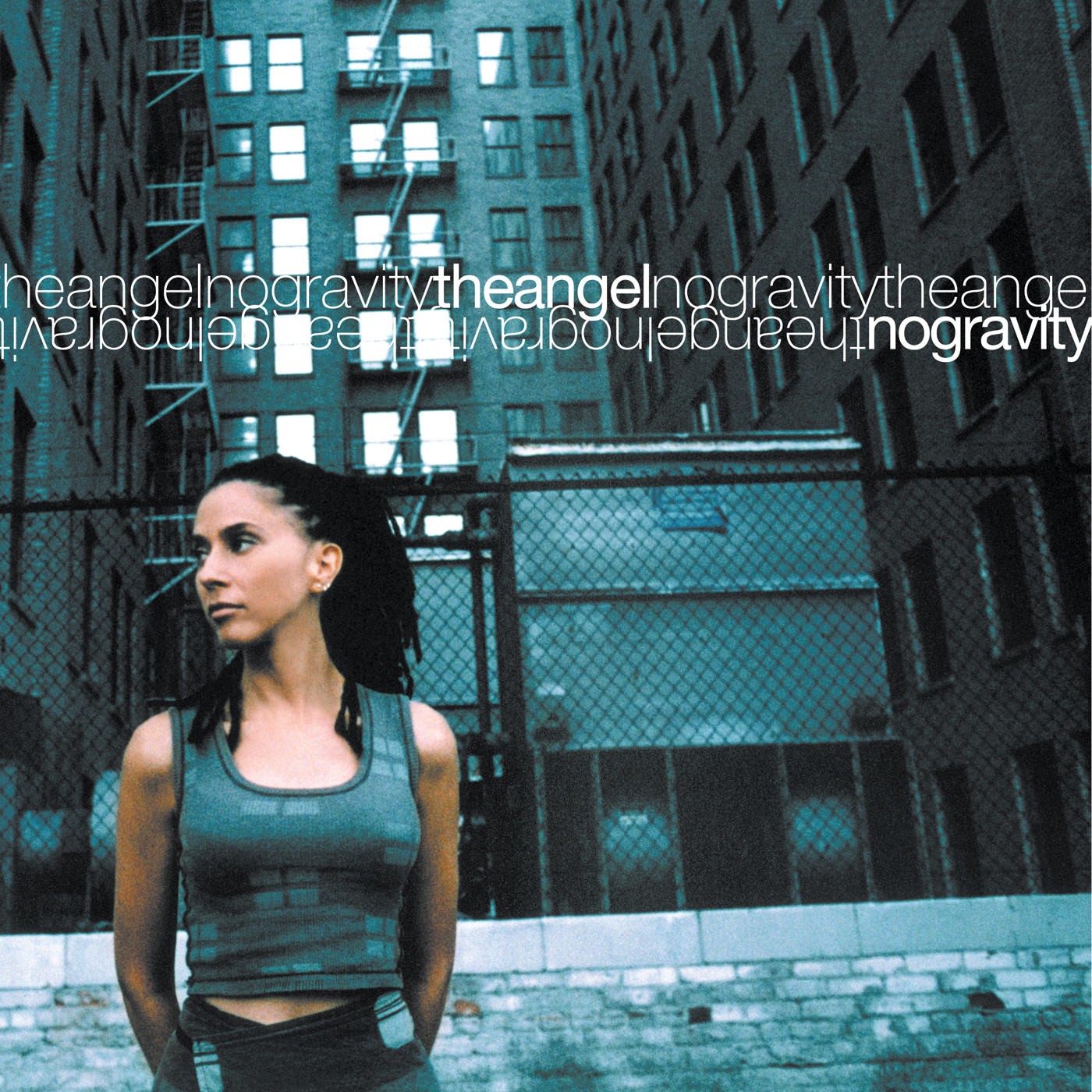
Image Credits:
Kiino Villand Eve M. Cohen Alfeo Dixon Daniel Chavira














